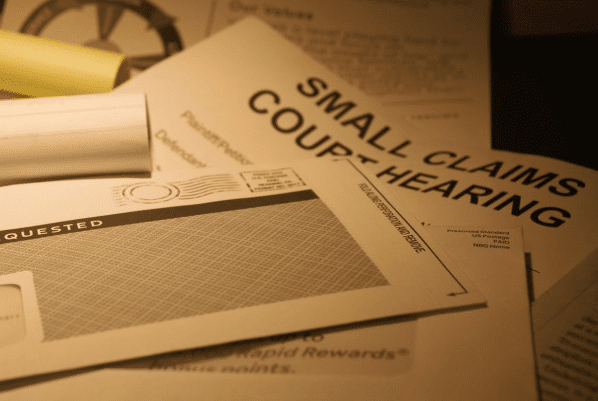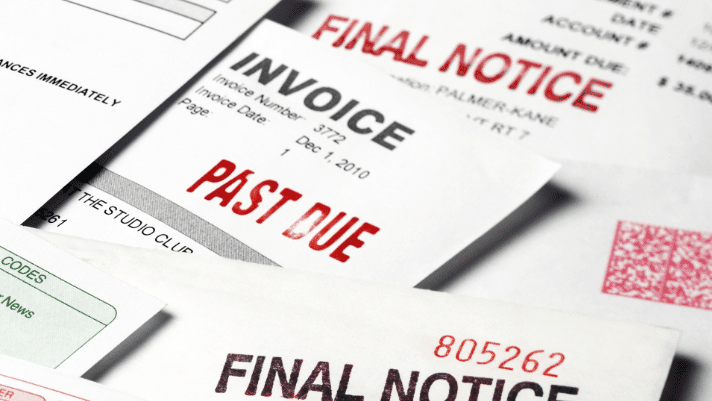In Idaho, you have 21 days to respond to a debt collection Summons before facing automatic loss. Filing an Answer with the court is crucial, with a $136 filing fee applicable. Failure to pay may lead to document rejection. ZumaZip streamlines the response process in just 15 minutes, significantly enhancing your chances of winning by 7x.
Facing a debt lawsuit in Idaho can be stressful, but you can defend yourself effectively, even without legal training. By following the steps outlined below, you’ll learn how to challenge the lawsuit and protect yourself from garnishment:
- Understand the Deadline: You typically have 21 days to respond to a debt collection lawsuit in Idaho before facing automatic loss.
- Know the Required Documents: Filing an Answer with the court is crucial. Be aware that Idaho courts charge a $136 filing fee for this document, which must be paid to avoid rejection.
- Follow the Steps to Drafting and Filing Your Answer: Take the necessary steps to draft your Answer accurately. ZumaZip offers a streamlined process, making it quick and easy to respond in just 15 minutes. This can significantly increase your chances of success.
By understanding the deadlines, required documents, and steps involved in responding to a debt collection lawsuit in Idaho, you can effectively defend yourself and protect your financial interests.
Idaho has a deadline for answering a debt collection Summons
In Idaho, responding to a debt collection Summons is time-sensitive. Once you’ve been served with the Summons and Complaint, a deadline begins to count down. It’s crucial to act promptly to ensure you have adequate time to craft and submit your response.
Under Rule 12 of Idaho Rules of Civil Procedure, it states:
“(A) a defendant must serve an answer within 21 days after being served with the summons and complaint.”
21 days–In Idaho, you only have 21 days to file an Answer with the court after you’re served the Summons and Complaint. There are several things to remember:
- The date you are served with the Summons and Complaint does not count in the calculation. This means that the clock starts ticking the day after you are given a copy of the Complaint.
- This includes weekends and non-business holidays. 21 days is 21 days. But if the Court is closed on the 21st day, the deadline becomes the next day it is open.
If you miss the deadline, you have missed your chance to defend yourself. In only rare circumstances will a judge let you fight a lawsuit after you’ve missed the deadline.
If you have missed the deadline, the debt collector is entitled to a default judgment. This means the judge will grant their request to allow them to collect the full amount through wage garnishment and liens. If the amount is wrong, or you do not legally owe the money, it is now too late to do anything about it in most cases. So, make sure you don’t miss the deadline.
File your Answer to a Summons and Complaint with ZumaZip.
Use these Idaho Answer forms to respond to a Summons and Complaint
To respond to the lawsuit you must file a document called an “Answer.”
This is different from a reply or response, both of which are different legal documents. So if you are searching the internet for forms or information, use the word “answer” and ignore anything about a “reply” or “response.”
Use ZumaZip’s free Answer form to respond to a debt collection lawsuit in Idaho. Here’s what it looks like:
It’s quick and easy to fill, takes less than 15 minutes, and it has the best track record for debt collection lawsuits (we get cases dismissed every day). And did we mention it’s free?
If you prefer to fill out your own Answer, Idaho courts also have some forms you can use to help you get started:
Navigating a debt collection lawsuit can indeed be daunting, especially when it comes to using the right legal terminology to present a robust defense. ZumaZip’s Answer form streamlines this process by providing professional, legally sound language and incorporating a section for asserting affirmative defenses. Whether you choose to use ZumaZip or another form, leveraging such resources can significantly aid you in navigating the legal intricacies of your case.
Idaho charges an Answer filing fee
Idaho courts charge a mandatory, statewide filing fee to file an Answer into your case. Idaho’s Answer filing fee is $136. If you try to send your Answer without paying the filing fee, the court will reject the document.
We know—it’s not fair to have to pay a fee just to defend yourself, but unfortunately that’s the reality in Idaho courts. If you cannot afford to pay the fee, you can fill out this fee waiver request. There is a good chance the court will grant your request, if you can prove financial hardship, and file your Answer without processing the fee.
Follow these steps to Answer a Summons in Idaho
When you get sued for debt in Idaho, you should receive a Summons and Complaint in the mail. These are court documents that initiate a lawsuit. The Summons notifies you of the case, while the Complaint lists the specific claims being made against you.
The first step to winning your lawsuit is to respond to the Summons and Complaint by filing a written Answer into the case.
Here are three steps to follow when you Answer a debt collection lawsuit in Idaho:
- Answer each claim listed in the Complaint.
- Assert your affirmative defenses.
- File the Answer with the court and serve the plaintiff.
Now, let’s break down each step in detail.
1. Answer each claim listed in the Complaint
The first section of your Answer document should focus on responding to each numbered claim listed in the Complaint document.
You should create a list with responses that correspond to the numbered list of claims from the Complaint. If you fail to respond to even one of the claims, the court will interpret it as an admission. This is why you should reply to everything listed in the Complaint with one of these three responses:
- Admit—this is like saying, “This is true.”
- Deny—this is like saying, “Prove it.”
- Deny due to lack of knowledge—this is like saying, “I don’t know.”
Most attorneys recommend denying as many claims as possible. This will give you a stronger case, because it forces the opposing party to prove their claims.
Please remember, if you admit a claim in your Answer, you may be unable to deny it later. There is no rule against denying every paragraph but you should agree if you know for a fact that the paragraph is true. Also, do not skip any paragraphs; each numbered paragraph should have a response.
Respond to a Summons and Complaint in minutes with ZumaZip.
2. Assert your affirmative defenses
What if you want to do more than just deny the claims from the Complaint? What if you have a legal defense? After listing your responses, you should add a section where you assert your affirmative defenses. An affirmative defense is a reason why the person suing you doesn’t have a case.
Rule 8(c) of Idaho Rules of Civil Procedure outlines some of the affirmative defenses you can assert in a civil lawsuit:
“(1) In General. In responding to a pleading, a party must affirmatively state any avoidance or affirmative defense, including:
(A) accord and satisfaction;
(B) arbitration and award;
(C) assumption of risk;
(D) contributory or comparative responsibility;
(E) duress;
(F) estoppel;
(G) failure of consideration;
(H) fraud;
(I) illegality;
(J) injury by fellow servant;
(K) laches;
(L) license;
(M) payment;
(N) release;
(O) res judicata;
(P) statute of frauds;
(Q) statute of limitations;
(R) waiver; and
(S) discharge in bankruptcy.”
As you can see, there are many affirmative defenses you can use in your Answer document. You’re probably wondering what a lot of these mean. ZumaZip makes it simple by using everyday language when you fill out the Answer form translating it to the legal wording for you.Here are some of the more common affirmative defenses we see in debt collection lawsuits:
Here are some affirmative defenses you can consider when responding to a debt collection lawsuit:
- Satisfaction: If you believe you’ve already paid the debt, assert this defense. You’ll need to provide proof later, but for now, make the allegation to the judge.
- Mistaken Identity: If you’re not the person the creditor is seeking, inform the judge. Deny the paragraphs in the Complaint that claim you owe money and assert they have the wrong party.
- Incorrect Amount: Challenge the amount claimed by the creditor if you believe it’s inaccurate. You can dispute it by denying the paragraph in the Complaint that states the debt’s amount.
- Statute of Limitations: If the debt is several years old, consider asserting a statute of limitations defense. In Idaho, it’s typically 5 years for written contracts or 4 years for oral contracts.
Remember, while these defenses may apply to your situation, simply being unable to pay the debt is usually not a legal defense. It’s essential to assess your circumstances carefully and choose defenses that align with your case.
3. File the Answer with the court and serve the plaintiff
Now that you’ve responded to all the claims and assert your affirmative defenses, you’re ready to file your Answer. Here’s what you need to do:
- Print three copies of the Answer.
- File a copy with the court.
- Send a copy to the other side’s attorney.
- Keep a copy for yourself.
You can mail the documents in or drop them off in person. Or, you can have ZumaZip file your Answer for you and serve the opposing attorney.
ZumaZip can file your Answer for you in all 50 states.
ZumaZip is a comprehensive tool designed to assist individuals in navigating debt-related legal challenges with ease.
With ZumaZip, you can:
- Respond to Debt Lawsuits: Easily draft and submit responses to debt lawsuits using ZumaZip’s step-by-step web application.
- Communicate with Collectors: Send letters to debt collectors directly through the platform, streamlining communication.
- Settle Debts: ZumaZip facilitates debt settlement negotiations, providing guidance and support throughout the process.
ZumaZip’s Answer service is particularly noteworthy. It guides users through the completion of their Answer document, ensuring all necessary information is included. Additionally, each document undergoes attorney review before filing, ensuring accuracy and effectiveness.
In essence, ZumaZip empowers individuals to navigate debt-related legal matters confidently and efficiently, offering a user-friendly solution backed by professional expertise.
Idaho statute of limitations on debt
The statute of limitations is a law that governs how much time debt collectors or creditors have to sue someone for a debt.
According to Idaho Statutes, §5-217 states:
ACTION ON ORAL CONTRACT. Within four (4) years:
An action upon a contract, obligation or liability not founded upon an instrument of writing.”
This means that the Idaho statute of limitations for oral contracts is four years. In other words, the statute of limitations on credit card debt in Idaho is four years. So, if you haven’t made a payment on your credit card account for four or more years, you can’t be taken to court for the debt.
On the other hand, §5-216 states:
“ACTION ON WRITTEN CONTRACT. Within five (5) years:
An action upon any contract, obligation or liability founded upon an instrument in writing.”
Similarly, the Idaho statute of limitations for written contracts is five years. So for any contract that is in writing, debt collectors and creditors only have five years from the last activity on the account to sue.
An inactive account means that no payment has been made on it, and no payment agreement or plan has been set up. If you start making payments on an old debt again, this will restart the clock on the statute of limitations. So always check the statute of limitations on a debt before agreeing to make any payments to your creditor or debt collectors.
However, keep in mind that an expired statute of limitations will do nothing to keep a creditor or debt collector from suing you; they may try to take you to court and hope that you are not aware of the debt timeline. This is why you should use the statute of limitations as an affirmative defense if it applies to your case. It’s the only way you can get out of a lawsuit and avoid being pressured to pay the debt.
Use the statute of limitations as an affirmative defense in your Answer.
The table below highlights Idaho’s statute of limitations on different types of debt:
| Debt Type | Deadline In Years |
|---|---|
| Credit Card | 4 |
| Oral contracts | 4 |
| Open accounts | 4 |
| Written contracts | 5 |
| Rent | 5 |
| Judgment | 6 |
| Findlaw |
Idaho court locations for debt collection lawsuits
Once you’ve filed your Answer, it’s important to stay updated on the status of your court case. You can call the court clerk or pay a visit to the courthouse to do so.
ZumaZip has compiled this Idaho courts directory to make checking your case status easier. This directory includes courthouse addresses and court clerk phone numbers.
Idaho legal aid organizations can help you
Like all the other U.S. states, Idoah has government-funded organizations where you can receive free legal services. You can find out more information on how to get legal aid in Idaho below:
Idaho Legal Aid Services, Inc.
(208) 336-8980
1447 S. Tyrell Lane
Boise, ID 83706
ILF Volunteer Lawyers Program
(208) 334-4500
525 W. Jefferson Street
Boise, ID 83702
What happens after you file your Answer to the Idaho Summons
Once you have filed your Answer, the lawsuit is now in dispute. The next step is for the court to set a hearing. The purpose of the hearing is to figure out the schedule and set deadlines for the remainder of the proceeding. Be on the lookout for a scheduling order or a hearing notice in the mail. Often the initial “hearing” is a phone call with everyone on the line to coordinate everyone’s schedule.
That being said, some debt collectors would rather drop the case after receiving an Answer. If this is the case, you won’t have to attend any hearing.
What if I can’t pay?
Not having the money to pay for the debt is not a legal defense. However, filing bankruptcy would put the debt collection on hold and, depending on your circumstances, may mean you never have to pay back the debt. If you want to know more about bankruptcy, including a free bankruptcy service, check out Upsolve.com
Idaho debt collection laws can protect you sketchy debt collectors
As a consumer, you have rights. The Fair Debt Collection Practices Act has rules that govern the conduct of debt collectors when they contact you about a debt. Collection agencies are forbidden from:
- Contacting you multiple times per day.
- Contacting you prior to 8:00 a.m. or after 9:00 p.m.
- Contacting you after receiving a cease-and-desist notice.
- Contacting your family, friends, or coworkers regarding your debt.
- Refusing to provide validation for your debt.
If you experience a debt collector using any of these methods, report them immediately. You can report them using the FTC online platform, or by calling them at 877-382-4357. Additionally, you can report them to the CFPB, using their website, or by calling 855-411-2372.
Key Takeaways
Here’s a concise summary of how to respond to a debt collection Summons in Idaho:
- You have 21 days to respond to the lawsuit.
- Use ZumaZip’s Answer form or Idaho court forms.
- Expect an Answer filing fee of $136.
- Follow three steps: Answer each claim, assert affirmative defenses, and file with the court.
- ZumaZip streamlines the process, allowing you to draft and file in 15 minutes.
- The statute of limitations for credit card debt in Idaho is four years.
- Seek assistance from Idaho’s legal aid organizations if needed.
We trust this summary has been beneficial. Feel free to contact ZumaZip for further assistance or questions regarding drafting and filing your Answer.
What is ZumaZip?
ZumaZip is a convenient solution designed to streamline your response to a debt collection lawsuit. Here’s a breakdown of what you can expect when you use ZumaZip:
Firstly, you’ll access our user-friendly web application, which guides you through the process step by step. You’ll be prompted to answer a series of questions related to your specific situation. Once you’ve completed the questionnaire, you have the option to either print out the finalized forms and mail them to the appropriate courts yourself, or you can opt to utilize ZumaZip’s services to file them on your behalf. Additionally, if you choose this option, an attorney will review your document for added peace of mind.
If you’re seeking guidance on how to effectively respond to a debt collection lawsuit, ZumaZip can provide the assistance you need. Feel free to explore our FAQs for more information on what ZumaZip has to offer.
What if I haven’t been sued yet?
If you’ve only received a collections notice, but not a lawsuit, the best way to respond is with a Debt Validation Letter. When a debt collector contacts you in any way, whether it’s by phone or mail, you can respond by formally requesting a debt validation with a Debt Validation Letter . This letter notifies the collector that you dispute the debt and forces them to provide proof you owe the debt. They can’t call you or continue collecting until they provide validation of the debt. This flowchart shows how you can use a Debt Validation Letter to win.
Get started with a Debt Validation Letter here.
How to Answer a Summons for debt collection in all 50 states
Here’s a list of guides on how to respond to a debt collection lawsuit in each state:
- Alabama
- Alaska
- Arizona
- Arkansas
- California
- Colorado
- Connecticut
- Delaware
- Florida
- Georgia
- Hawaii
- Idaho
- Illinois
- Indiana
- Iowa
- Kansas
- Kentucky
- Louisiana
- Maine
- Maryland
- Massachusetts
- Michigan
- Minnesota
- Mississippi
- Missouri
- Montana
- Nebraska
- Nevada
- New Hampshire
- New Jersey
- New Mexico
- New York
- North Carolina
- North Dakota
- Ohio
- Oklahoma
- Oregon
- Pennsylvania
- Rhode Island
- South Carolina
- South Dakota
- Tennessee
- Texas
- Utah
- Vermont; Vermont (Small Claims court)
- Virginia
- Washington
- West Virginia
- Wisconsin
- Wyoming
Guides on how to beat every debt collector
Hey there! Facing off against a debt collector can feel like a daunting challenge, but fear not! We’re here to help you navigate through it all with our handy guides designed to assist you in beating every debt collector you encounter. Whether you’re facing a new lawsuit or dealing with a persistent collector, we’ve got your back. Stay positive, stay informed, and let’s tackle this together!
- Absolute Resolutions Investments LLC
- Accredited Collection Services
- Alliance One
- Amcol Clmbia
- American Recovery Service
- Asset Acceptance LLC
- Asset Recovery Solutions
- Associated Credit Services
- Autovest LLC
- Cach LLC
- Cavalry SPV I LLC
- Cerastes LLC
- Colinfobur
- Covington Credit
- Crown Asset Management
- CTC Debt Collector
- Cypress Financial Recoveries
- Delanor Kemper & Associates
- Eagle Loan of Ohio
- Educap
- Estate Information Services
- FIA Card Services
- Forster & Garbus
- Freshview Solutions
- Fulton Friedman & Gullace LLP
- Harvest Credit Management
- Howard Lee Schiff
- Hudson & Keyse LLC
- Integras Capital Recovery LLC
- Javitch Block
- Jefferson Capital Systems LLC
- LVNV Funding
- Mannbracken
- Mariner Finance
- Medicredit
- Michael J Adams PC
- Michael J Scott
- Midland Funding LLC
- Mullooly, Jeffrey, Rooney & Flynn
- Mountain Land Collections
- MRS Associates
- National Collegiate Trust
- Nationstar Foreclosure
- Northstar Capital Acquisition
- NCEP LLC
- NRC Collection Agency
- OneMain Financial
- Palisades Collection LLC
- Pallida LLC
- Paragon Revenue Group
- Pinnacle Collections Agency
- PMAB LLC
- Portfolio Recovery Associates
- Provest Law
- PYOD LLC
- Reunion Student Loan Finance Corporation
- Revenue Group
- Regents and Associates
- RSIEH
- Salander Enterprises LLC
- Second Round Sub LLC
- Security Credit Services
- Sherman Financial Group
- Suttell and Hammer
- T-Mobile
- Transworld Systems
- Tulsa Teachers Credit Union
- UCB Collection
- Velo Law Office
- Velocity Investments
- Waypoint Resource Group
- Weinberg and Associates
- Wolpoff & Abramson
Settle your medical debt
Having a health challenge is stressful, but dealing medical debt on top of it is overwhelming. Here are some resources on how to manage medical debt.
- Am I Responsible for My Spouse’s Medical Debt?
- Do I Need a Lawyer for Medical Bills?
- Do I Need a Lawyer to Fight Medical Bill Debt?
- Does Bankruptcy Clear Medical Debt?
- How Much Do Collection Agencies Pay for Medical Debt?
- How to Find Medical Debt Forgiveness Programs
- Is There a Statute of Limitations on Medical Bills?
- Medical Debt Statute of Limitations by State
- Summoned to Court for Medical Bills — What Do I Do?
- Summoned to Court for Medical Bills? What to Do Next
Stop calls from Debt Collectors
Do you keep getting calls from an unknown number, only to realize that it’s a debt collector on the other line? If you’ve been called by any of the following numbers, chances are you have collectors coming after you, and we’ll tell you how to stop them.



































